Course outline & essential info
2026 details coming soon!
This demanding, fun and technical Chamonix course combines mountain medicine training with ski instruction / guiding in one brilliant package. Includes 6 days of skiing and 10 hours medical tuition (on/off slope), 7 nights accommodation and avalanche safety kit.
This immersive experience will develop your all-mountain skiing competence and equip you to provide emergency medical care in the mountains.
10 skiers per course with 3 staff. At least 12 CPD hours. Click on the small images to enlarge and scroll through them. The 2025 courses were held at the luxurious Chalet Cristalliers (pictured below) which we also used in ’24. See also the Tromso Ski Touring Expedition 22-29 April.
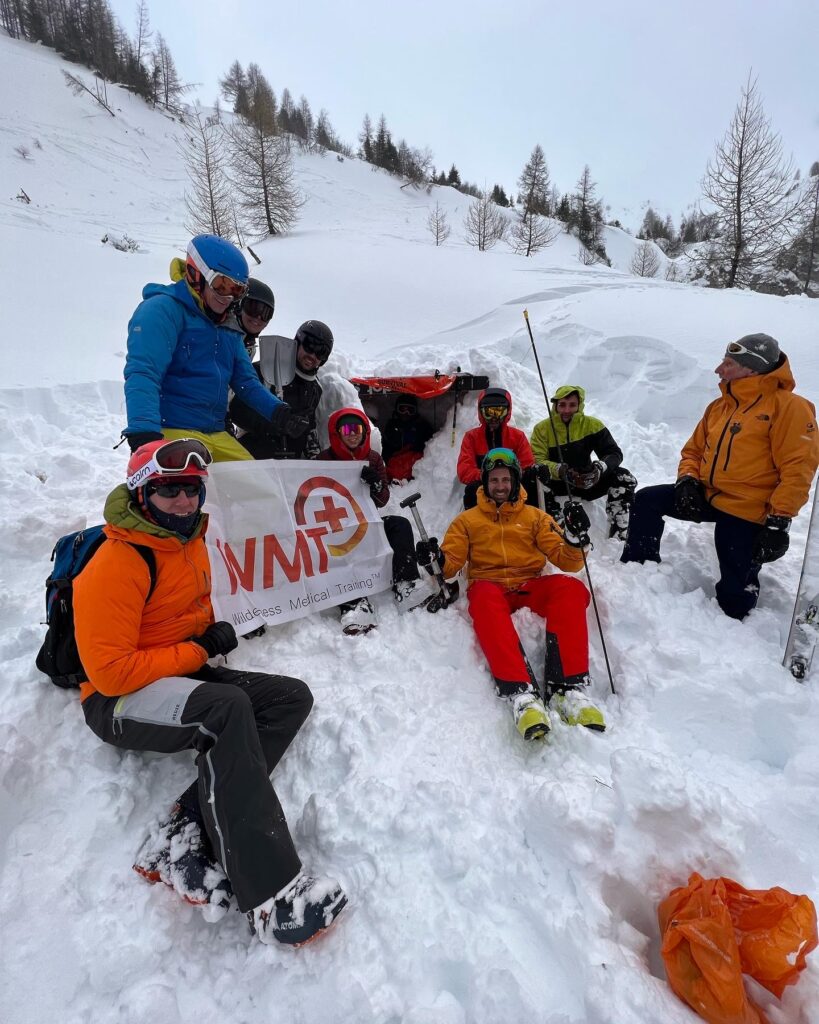
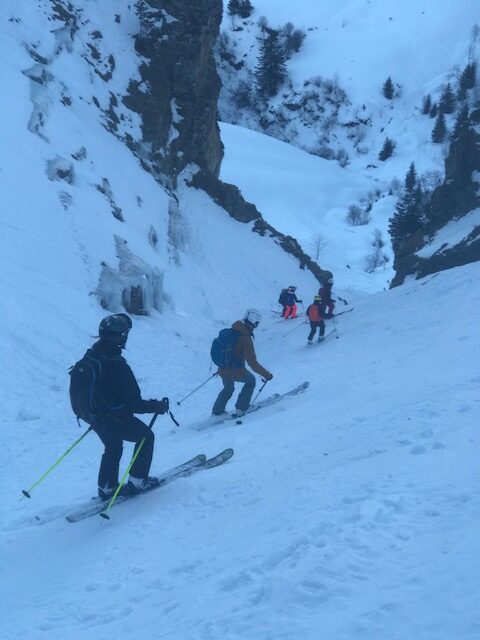
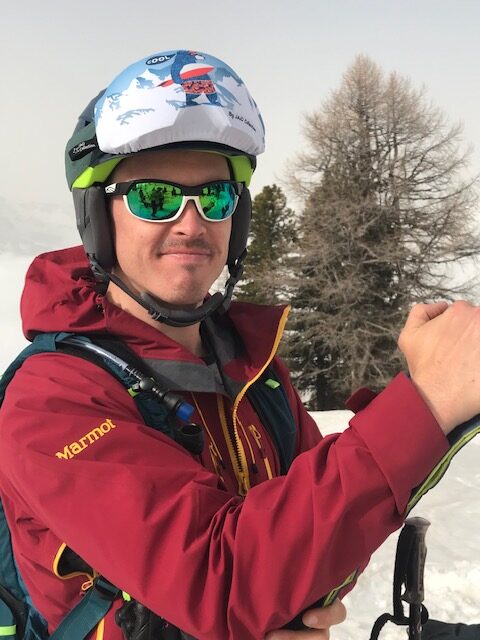
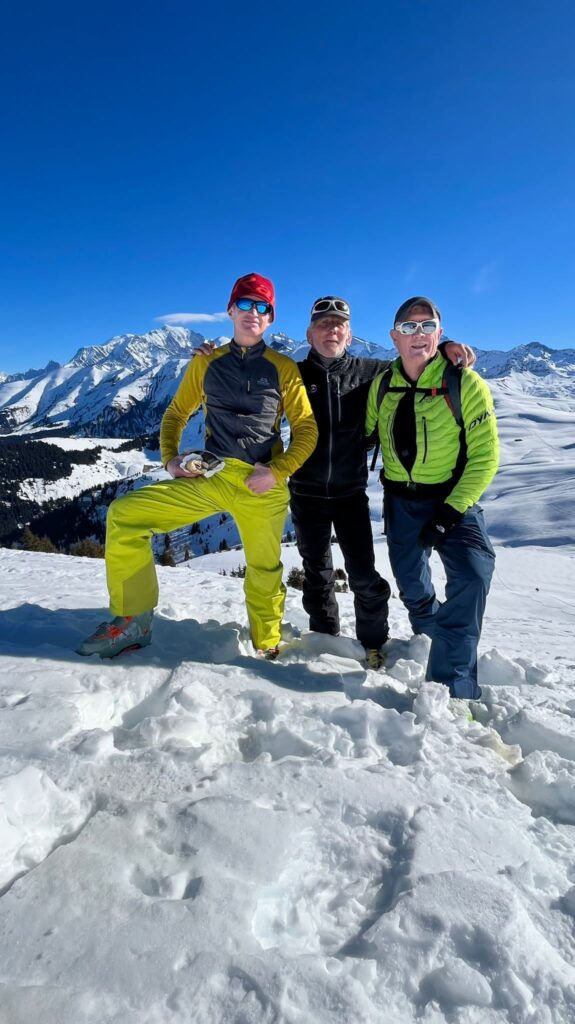
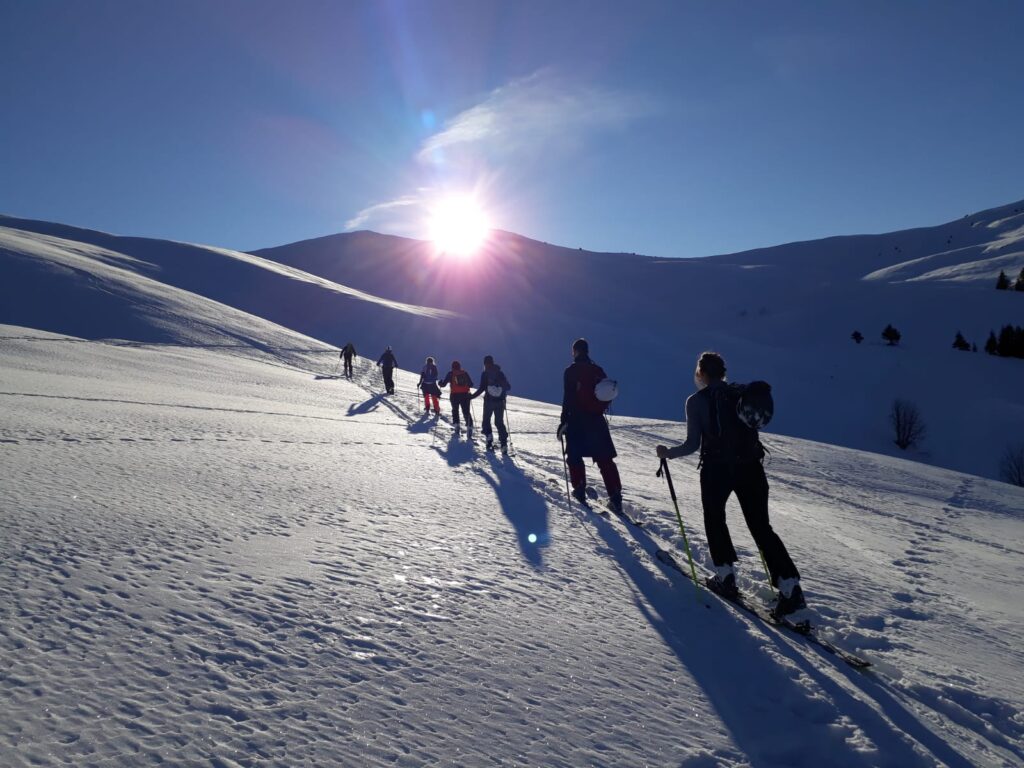
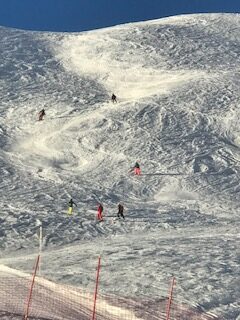



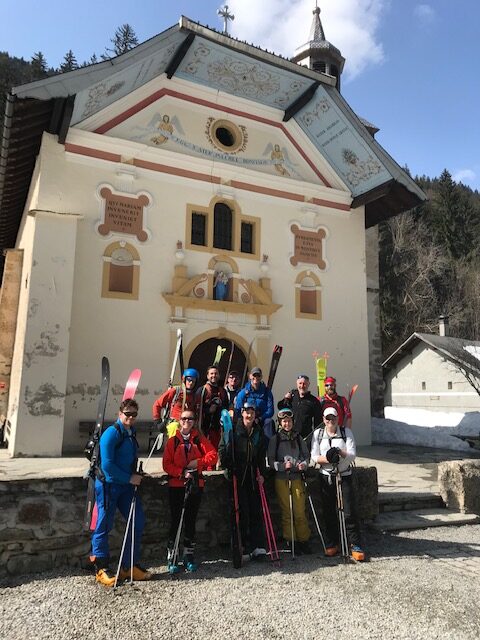
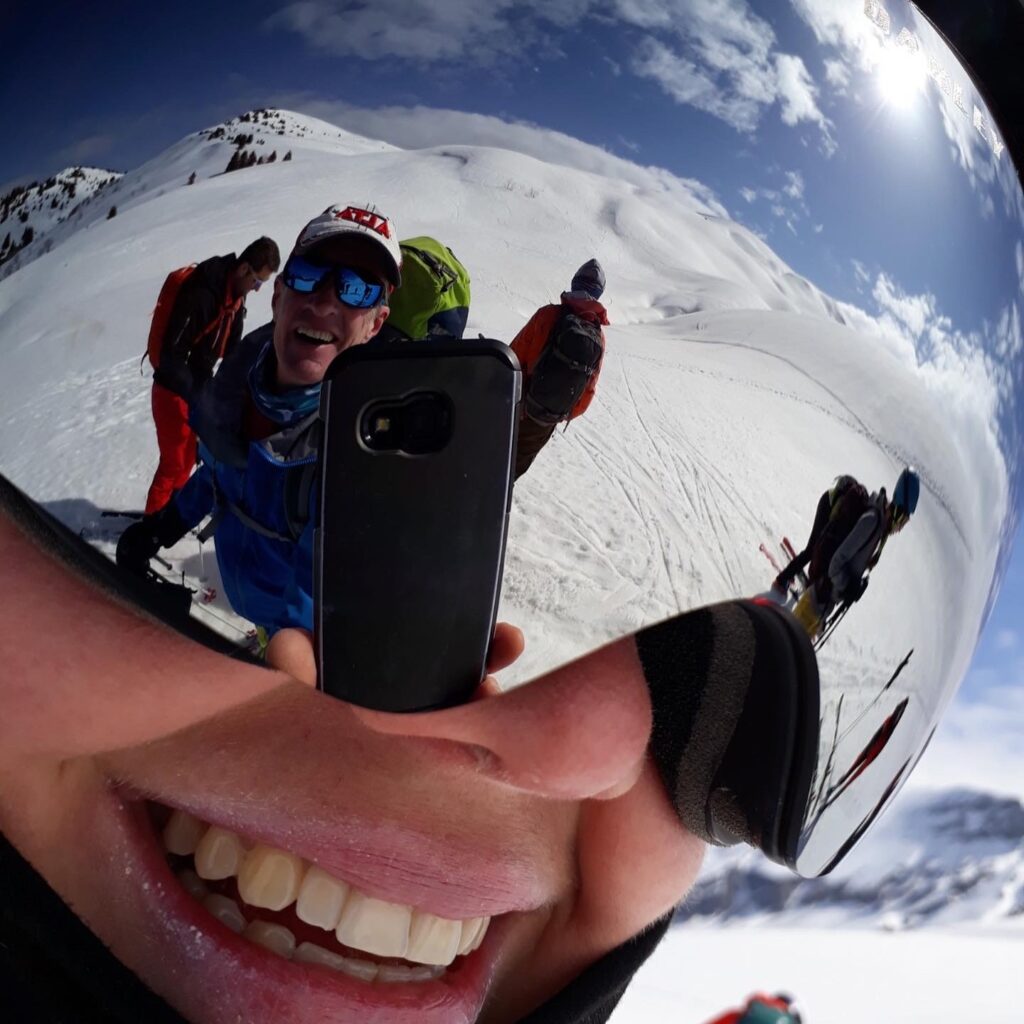
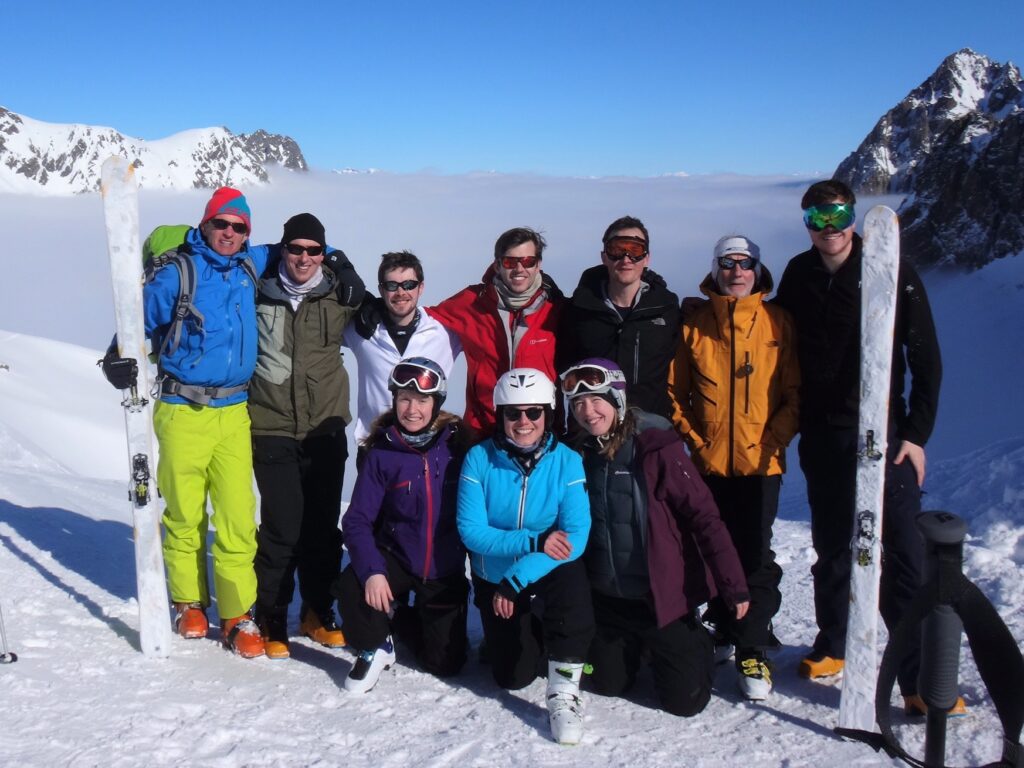
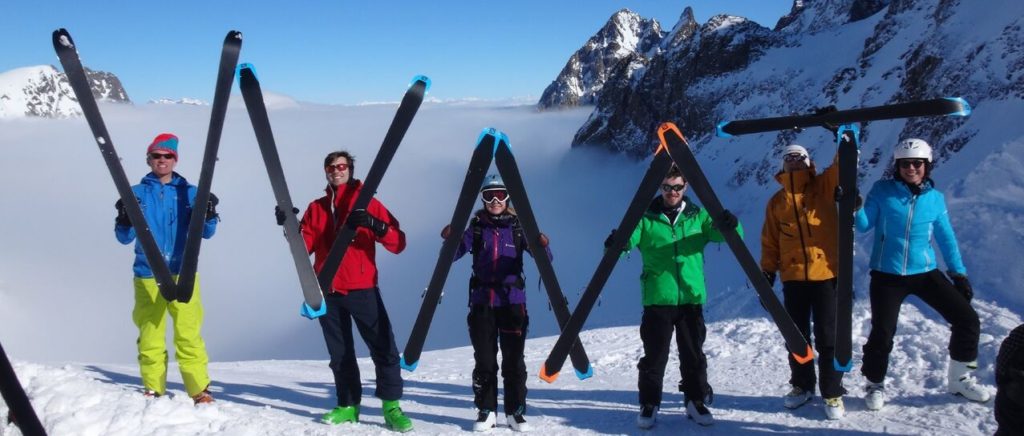

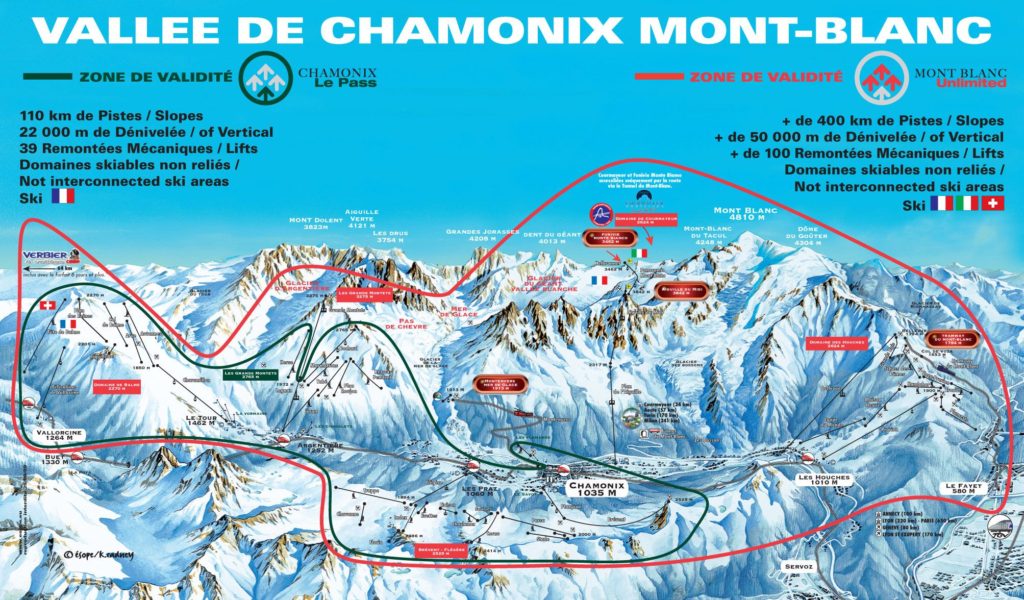



2026 details pending
- 6 days ski guiding/instruction and ski touring – the first ski day is Sunday
- 7 nights twin room en suite chalet acccommodation at Chalet Cristalliers with a hot tub
- Complimentary “avo” kit loan – transceiver, shovel & probe
- In-resort transportation
- Participants self-cater and share the cost of groceries (and very occassionally eat out)
Delegate feedback
The best course I have ever been on.
It was intense but I was expecting it.
Feel my skiing has really improved.
….excellent course
Medical lectures extremely well delivered and evidence based.
I loved this course.
Who should attend?
This course is for ski mad medics and non-medics keen to advance their ski and mountain craft, enjoy a taste of ski touring, attain CPD and potentially prepare for a mountain oriented expedition medic role – or just for an immersive, active educational and fun experience. We welcome anybody of any age who meets the skiing standard and understands the dynamic, fluid nature of this course.
Timings – arrival / departure
Chalet check in is from 4pm Saturday (and there’s a locked left luggage “shed” for early arrivals/late departures). Chalet check out is 10am on the last day (Saturday). The 6 ski days are Sunday to Friday.

Ski programme – Sunday to Friday
Day 1 – Ski warm up, mountain safety training/avalanche awareness & transceiver use
Day 2 – Developing piste ski skills; posture check, learning to flow, edge, ski with less effort, more grace, efficiency, and control of speed and the line taken.
Day 3 – Transistion to TOURING kit for week TWO participants – or for week ONE, continuation of exploring off piste; new techniques and tricks, choosing a safe line back-country
Day 4 – Alpine skiing then usually we collect rental touring skis late afternoon and teach how to put skins on, kick turn, and have a short practise ski on the beginner slopes in town to be sure everyone’s touring kit fits comfortably.
Days 5 & 6 – We’ll go ski touring*, off piste or glacier skiing depending on conditions and group ability, more student input to trip planning and execution, teaching and coaching en route
*Ski touring describes using special bindings and skins stuck on the base of the skis to enable one to climb – slide uphill essentially. This enables us to reach areas inaccessible by ski lifts so by definition we’re going off piste or back-country where the snow is not groomed or avalanche controlled. We might not turn you into a complete back-country ski ninja in six days but we’ll certainly advance your skills.

Medical training – overview
The medical training is focussed on managing trauma in the wild and environmental medicine – high, hot, cold and freezing which are of particular relevance to the mountain traveller. The WMT Medic course handbook provided (200+ pages) covers the full range of wilderness medicine topics and is an excellent aide memoire for further study and reference.
The après ski tutorials and outdoor teaching is infused with cases and examples from real-world faculty austere medical experience to focus on the most pragmatic and useful information, emphasising what can be done by an expedition medic that is practical and achievable.
Après ski medical tutorial programme
Arrive Saturday – formal welcome if everyone arrives by 6pm otherwise there’s a Sunday morning briefing before skiing and the formal welcome Sunday evening.
Day 1 (Sunday) first ski day – Formal welcome and medical tutorials – Medical management of the avalanche victim – ICAR algorithm. Avalanche safety.
Day 2 Managing the trauma patient in a cold, hostile environment including “donut” approach to outdoor incident management and why just doing your ABCs in isolation isn’t enough. Faculty special career lectures some nights.
Day 3 Frostbite – exploring why “delay equals digits, faffing is fingers and time is toes”. Human dynamics in the outdoors – ski touring heuristics & case exercise.
Day 4 Hypothermia – exploring the maxim “cotton kills in the hills”.
Day 5 Altitude medicine – 3 syndromes, medicines and group management strategies. Case: Everest illustrated presentation.
Day 6 (final ski day) Debrief of the week, feedback, certificates and formal course close. No evening tutorial.
Day 7 – depart (chalet check out by 10am)
Mountainside medical practical sessions
Trauma management & triage in the avalanche setting.
Cold mitigation strategies and equipment.
Femoral and pelvic fracture management, splint improvisation, moving, lifting and carrying a seriously injured casualty improvising with the kit one would carry in the mountains.
Dislocated shoulder relocation techniques.
Use of Penthrox.
Building snow shelters.
Useful, but basic, ropecraft.
Scenarios combining the mountaincraft and medical skills covered to care for a casualty in a cold, hostile environment.
The course handbook covers many other topics and we are happy to add informal tutorials over coffee on the slopes as interest and time permits. With a small course group, the instructors are available throughout to discuss anything of interest on the chairlift, slopes, “classroom” or after hours in the pub.
Ski standard required
As a minimum, week ONE (1-8 March) delegates need to be “good” intermediate level skiers, meaning;
• On groomed red runs, you consistently ski parallel turns and can control your speed and line down the mountain. If you easily fall over on red runs you don’t meet the standard.
• You can probably ski some black runs with a “I can get down anything” attitude but with less control and style.
• You are ski fit and able to ski a full day in any weather, love skiing and are very motivated to improve.
It’s vitally important that you do not over-egg your ability. Speak to WMT if you’re not sure you meet the minimum standard. Week TWO (8-15 March) participants must be ski fit competent off piste skiers with some ski touring experience so they understand the demands of multi-day ski touring.
Sorry – snow boarders cannot be accommodated.
Other experience, fitness & health warning
We have graded the physical demands of this course as HARD because skiing 6 full days, including some ski touring (ascending) requires reasonable fitness. You don’t need any climbing or mountaineering experience.
Only ski fit, team players that meet the minimum ski standard are invited on the most physically demanding course WMT offers.
This is not a ski racing, extreme skiing or steep skiing course and all ages are welcome. If you don’t meet the skiing standard or are not ski fit and able to keep up, you will have to ski independently. It is not possible to dip in and out of each training day to join in when you feel like it. This is just not logistically practical or in the spirit of the course.
If you are an expert skier, you may be frustrated with the pace as we teach/coach those of a lower standard, but, that said, it’s always possible to improve your skiing. This is not a holiday with late starts, lots of coffee stops and faffing. This is an intense and fun group experience with a lot of ski time though we – and you! – always need to remain flexible due to weather, avalanche risks and other factors beyond WMT’s control.
Accreditation
We estimate that this programme is valid for at least 12 CPD hours.
What’s included in the fee
What’s included in the fee?
- All instruction/tuition/lectures – 6 days of skiing with medical training input as outlined above
- 7 nights twin room chalet accommodation (single gender where possible if the numbers balance but cannot be guaranteed)
- loan of transceiver, shovel & probe for the week
- WMT Medic Course Notes (A5 200+ page book)
- In-resort transportation to/from the slopes for 6 days
What’s not included?
- Ski equipment – some days you’ll require touring skis and boots which you can rent
- Ski passes
- Meals, drinks, flights, insurance, airport transfers
- Anything not expressly mentioned is not included which may include supplementary costs if we ski tour further afield and stay in a mountain refuge (shared additional costs might include tunnel fees, fuel, accommodation and staff meals/drinks). Often, the added cost of a hut night is offset by a cheaper ski pass or sometimes a ski pass is not even required.
Teaching Team 2026 to be confirmed
Other information
Terms & conditions – Please be sure you appreciate WMT’s terms and conditions related to deposit payments, cancellations and Covid BEFORE you book. Payment schedule – Balance payments are due 60 days before a course. You must have adequate travel insurance to attend and you should take this out as soon as you book to protect yourself if YOU have to cancel. Eagle Ski Club Development Awards: aspiring ski tourers who are under 35 from the UK can apply for financial support to attend a course such as Mountain Medicine on Skis. Details here.Downloads
Optional pre-course reading WMT pre-course reading bundle 2020


